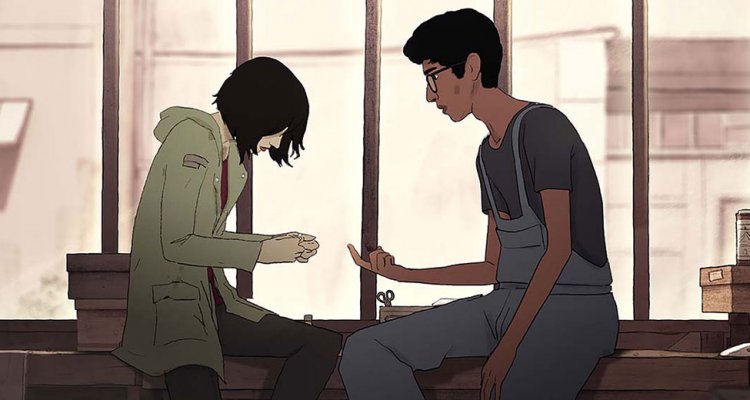CANNES – Imagine you wake up, but something is missing. In fact, a lot is missing. You are, simply, your hand. That is, in effect, the first scene of Jérémy Clapin’s animated marvel “I Lost My Body,” which debuted at the 2019 Cannes Film Festival less than 10 days ago. As a sentient “hand,” you are compelled to find your arm and it’s going to be a perilous journey getting there.
READ MORE: Best and Worst of the 2019 Cannes Film Festival
A loose adaptation of Guillaume Laurant‘s novel “Happy Hand,” Clapin’s narrative, um, cuts between the hand’s odyssey across Paris with the story of Naoufel, a young man from Northern Africa who has had a rough go of it after being sent to live with a distant relative in France as a child. Now in his late teens, Naoufel finds himself working as a pizza delivery boy and, to be frank, he’s not very good at it. The shop he works for offers a 30-minute guaranteed delivery and that’s a little too much stress for him to handle. After a very rainy trip which found him bust his bike in a car collision, he arrives at a tower apartment. The young woman who answers isn’t thrilled the pizza is late and Naoufel is simply defeated. But they talk and there is something about her voice that charms him. She doesn’t take the pizza, but he becomes obsessed with the mystery of meeting her.
At this point, it becomes clear the story is set in the ’90s. Naoufel returns home and begins the arduous task of searching for her name in the phone book (yes, these were ancient times). After much trial and error, he discovers she works in a library and her Uncle, a wood craftsman who is close to retirement. Seeking an opportunity, Naoufel convinces him to hire him as an apprentice. Not only is it a job he needs to free himself his obnoxious relatives, but a chance to get to know Gabrielle, the young woman who never got her pizza. And, no, she has no idea he was the boy at the end of that long-distance lobby to apartment call.
While Naoufel learns his trade and gets to know Gabrielle more closely, the hand is having a remarkable pilgrimage across the city. And this is where Clapin and his animation team truly soar. How they conjure the hand walking and surviving one perilous escapade after another is often ingenious. It is quite easy to figure out whose hand it is, but why it’s no longer with its body isn’t why you’re rooting for it to hopefully reunite. Clapin makes the hand a character. It has intelligence and wit and emotion. It demonstrates bravery as well as fear. And it fights even when you think there is no way it can survive. It wants to reunite by sheer will. But Clapin plays by a set number of rules. There is logic in this metaphor. The hand has to move and react as a real hand would. It can’t magically fly through the air. It has to use its fingers and palm to walk, climb and fight through each challenge.
Simply put, this is an expertly directed first feature. Clapin’s willingness to be patient as a scene unfolds, to let the hand experience the surreal images from its perspective, to let the quiet captivate the audience is beyond impressive. His animation is aided by a superb screenplay that doesn’t play dumb. This isn’t an animated film aiming to just entertain kids. It has a moving, emotional story about the fight to find one’s self and escaping the baggage that can bind you. It was incredibly captivating to see on the screen – an experience I cannot wait to experience again, but you can bet it will find millions of fans worldwide after an end of festival Netflix acquisition.
“I Lost My Body” also features an absolutely stellar score from Dan Levy, best known for his band, The Dø. [A]


